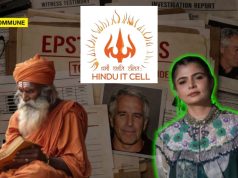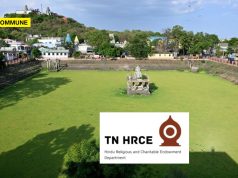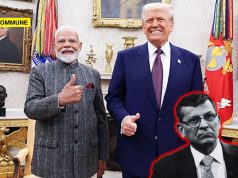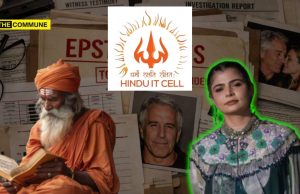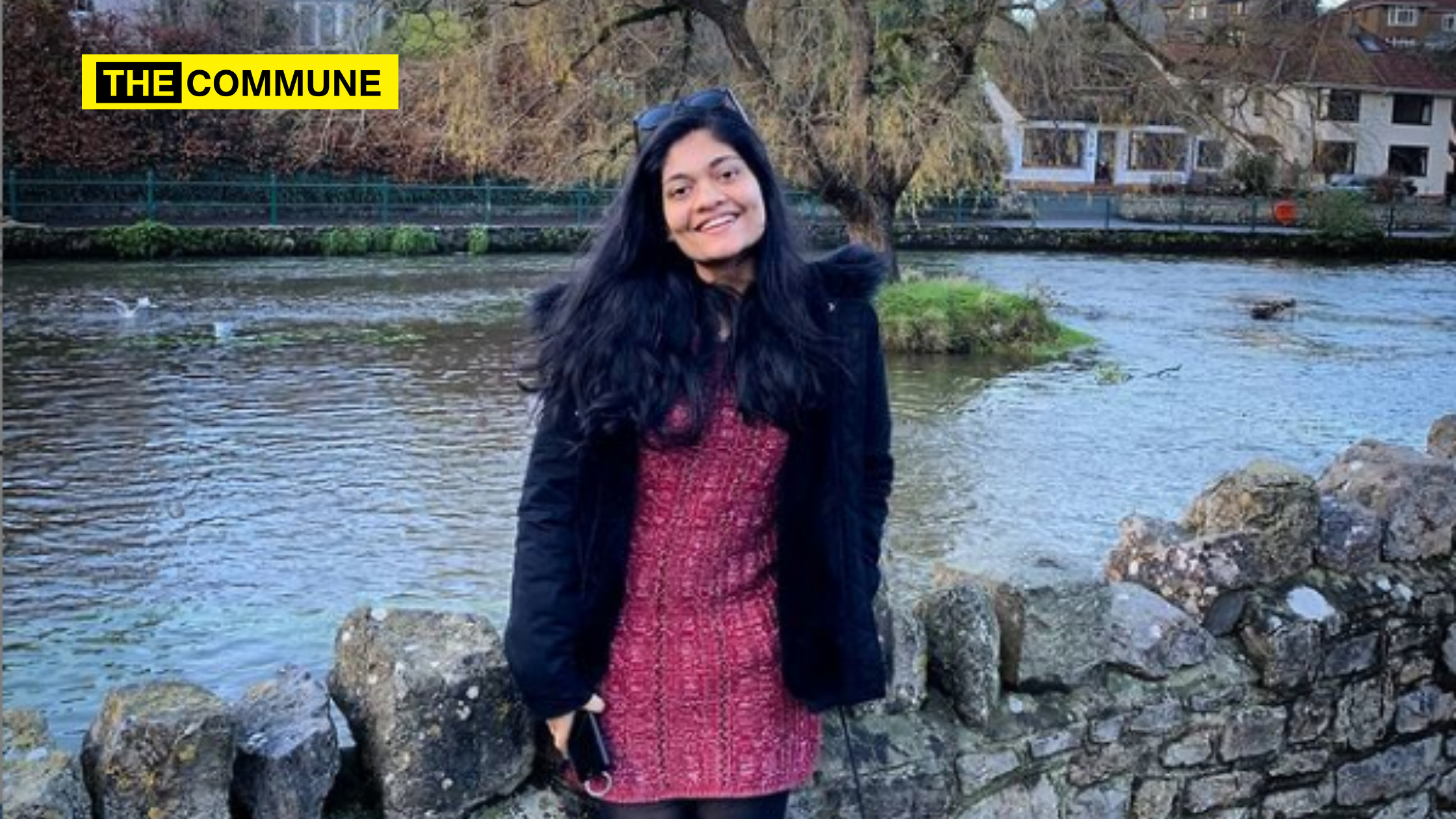
Indian immigrant Rashmi Samant quit as the President-elect of the Oxford Students Union, citing cyberbullying and ‘cancel culture’ as the reasons for her stepping down.
Rashmi was the first-ever Indian female to have been elected as the President of the student body.
She said that it had been one of the greatest honours of her life and that she was stepping down not because she was insensitive to the faith that people held towards her, but because of all the hate that had been directed towards her ever since she assumed office.
“I stepped down because my values taught me to be ‘sensitive’; sensitive to the feelings of the people who reposed faith in me, sensitive to my convictions that above all we need to respect fellow human beings, and sensitive to the welfare of the student community that deserves a working SU, and at the personal level, sensitive to the effects of cyberbullying that is targeted against me in the name of ‘sensitivity’,” she said in a social media post. She went on to say, “their religious sentiments and regional background were insulted in the public domain. The fact that I am a Hindu in no way makes me intolerant or unfit to be the President of the Oxford SU. Contrary to this, I understand the value of diversity in its true sense though my exposure to the intricacies of the developed world is limited.”
Here is the full statement:
I was born and raised in Udupi, a small coastal town in southwest India. Neither of my parents holds a university degree. Getting into Oxford with this background as a first-generation was a big achievement for my family and their only daughter. I moved to the UK almost five months ago to start my degree looking at transforming energy systems to address the concerns of climate change.
Advocating for student rights is close to my heart and something I pursued as an undergraduate in India. After combating months of self-doubt, I decided to take my interests forward at Oxford and hence ran for the post of president. From there to becoming the first Indian woman to ever win the post of the president of the Oxford Student Union in a historic election, has been truly one of the greatest honours of my life. I truly mean it since the odds were pretty much never in my favour.
In the chain of unfortunate events since, what hurts me the most is that my parents were dragged in the most insensitive manner: their religious sentiments and regional background were insulted in the public domain. The fact that I am a Hindu in no way makes me intolerant or unfit to be the President of the Oxford SU. Contrary to this, I understand the value of diversity in its true sense though my exposure to the intricacies of the developed world is limited.
Then why did I step down after becoming the first Indian woman to win the Oxford SU Presidency? Was it because these allegations of insensitivity made me realise that I was not fit enough to be the Oxford SU President?
The answer is “NO”.
I stepped down because my values taught me to be ‘sensitive’: sensitive to the feelings of the people who reposed faith in me, sensitive to my convictions that above all we need to respect fellow human beings, and sensitive to the welfare of the student community that deserves a working SU, and at the personal level, sensitive to the effects of cyberbullying that is targeted against me in name of ‘sensitivity’!
In the light of the developments that surrounded my election win and subsequent resignation, I am outlining my views for the knowledge of the entire student community that supported me.
When I was called to the podium for the presidential debate for the Oxford Student Union elections, I was repeatedly asked a question: ‘Why do you seek a policy of decolonisation when it played such an integral role in bringing about a global world without which billions more would be still living a life of absolute poverty?’
Ironically, the question contained the answer within it. It is my firm belief that one cannot fathom the impact of colonisation wearing the lens of the coloniser. I refused to hold the view that colonisation was a positive experience for the indigenous people of the colonies. I ran the campaign on decolonisation to highlight that the perspectives of people from the Global South derived from the historical experience of others were conveniently gaslit to deflect any kind of introspection about those this University considers ‘heroes.’ The idea was to make the students of Oxford truly reflective on taken for granted notions of colonisation.
In a university where Cecil Rhodes still stands tall looking over all of us, I took a stand that Rhodes was no better than Hitler himself. As someone from the erstwhile colonised India, I can only begin to fathom what Rhodes meant when he said, ‘the native is to be treated as a child and denied the franchise. We must adopt a system of despotism, such as works in India, in our relations with the barbarism of South Africa.’
Was this my crime? Was this my insensitivity to the Jewish community? By no means was I attempting to demean the experience of the Holocaust. My intention was not to hurt my Jewish friends by mitigating Hitler’s crimes, but rather to bring to notice that both Rhodes and Hitler’s intentions were borne of the same virus of bigotry and hatred that bred targeted violence. It was an attempt to kindle the sensitivity of those who are far removed geographically and historically from the realities of the colonial enterprise. Far from being insensitive, the analogy stemmed from the deeply shared sensitivity to the disturbing experience of exclusion. I championed the cause of decolonisation because I deeply felt that much of the syllabus selectively ignores and often appropriates oppression in the guise of development and philanthropy. I did run for inclusivity and still stand for it!
I wish to ask a question to all who termed me insensitive and racist citing my social media posts of the past. Are you being sensitive when you judge a person’s worth based on social media captions of a non-native English speaking teenager that were posted years before the person formed convictions on issues of race? Let me reiterate this: those posts are not a reflection of my hatred towards communities. They were the posts of a teenager who just had access to the world of social media. I again reiterate my apology to those genuinely hurt for my ignorance but not to those with malicious intent who targeted me on ‘insensitivity’.
The depth of diversity within our society requires constant learning within a healthy discourse. Unfortunately, the vile reaction to my apology closed off any space for any kind of learning or growth. It was painful to note that in the guise of being ‘sensitive’ certain groups have propagated intolerance: intolerance against the freshness of thought and initiatives for reflection. I was discredited and bullied (often through anonymous messages with comments on my race, the colour of skin and upbringing) in various ways in social media. The incessant bullying drove me to catch the first flight home to India.
I end with the words of Mahatma Gandhi “I claim to be a simple individual liable to err like any other fellow mortal. I own, however, that I have humility enough to confess my errors and to retrace my steps.” It is sad that despite my sincere apology for my ignorance I was bullied and put under a vicious social media trial.
I only hope that you would not let someone’s sham claims of sensitivity and social media trials blind you in bringing any change in future at least!
Click here to subscribe to The Commune on Telegram and get the best stories of the day delivered to you personally.

